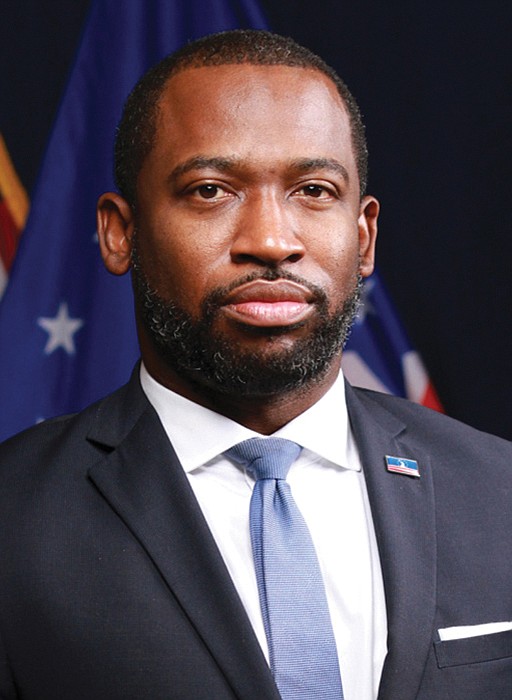Broken Promises
Jeremy M. Lazarus | 1/12/2023, 6 p.m.
City Hall policies apparently are made to be ignored.
At the top of the list is one Mayor Levar M. Stoney promised would be a constant when he first campaigned for office.
In running in 2016, he vowed to put the city’s fiscal house in order and deliver the annual comprehensive financial report (ACFR) on time – in contrast to the situation under his predecessor, Mayor Dwight C. Jones, who delivered the report late three years in a row.
Until this year, Mayor Stoney has kept that promise. But the ACFR for the 2021-22 fiscal year that ended June 30 has yet to be produced with audited details of the city’s revenue, spending and surplus.
Lincoln Saunders, the city’s chief administrative officer, told City Council at it’s Dec. 12 meeting the ACFR was in the process of being completed.
However, he has not set a date for presentation. So far, council has not publicly expressed any concern over the delay.
City Hall has not responded to Free Press requests for information on the ACFR.
However, the council has voted at the mayor’s request to allocate $18 million of a still uncertain surplus to provide a refund to property owners on real estate taxes.
Speaking on condition of anonymity, two insiders in the Finance Department told the Free Press that the staff led by Sheila White started working Dec. 19 with the outside auditors on account reconciliations. In previous years, the reconciliation of accounts, they said, started in August after the close of the books.
As of Dec. 19, the insiders said that a first draft of the ACFR had not been completed, noting that four or five drafts are usually required before the final version is published.
Another policy that appears to have been quietly dumped involves the city’s contributions to Richmond Public Schools.
involves the city’s contributions to Richmond Public Schools. In March 2019, 4th District Councilwoman Kristen M. Nye, now council vice president, successfully secured adoption of a resolution calling for 55.4 percent of real estate tax collections to be allocated to the operation of Richmond Public Schools in a bid to end complaints.
Accompanying the resolution was a financial report showing that the city had met or exceeded that percentage since at least 2009, undermining claims of advocates that schools were being short-changed in the budget.
However, unnoticed, the council dropped in the policy last May in adopting the 2022-23 budget. That budget provided a record $200 million for RPS operations. But that allocation represented only 52 percent of the projected $385 million in real estate collections, or $13 million less than RPS should have received under the policy.
When Mayor Stoney announced recently that Richmond was on track to collect in 2023 at least $406 million in real estate taxes, or $21 million more than was projected when the budget was finalized, he did not propose any of those dollars go to RPS as the policy would require.
Instead, he proposed to save $4 million and to spend the remaining $17 million on funding homeless shelter operations, improving pay for ranking police officers and firefighters and to take care of other city needs, such as paying for traffic calming measures.
Ms. Nye’s policy would have required $11.6 million of the windfall to be allocated to schools.
Ms. Nye did not publicly remind her colleagues about the policy violation when the budget was considered eight months ago, and she did not raise the policy when Mayor Stoney issued his proposed spending plan for the new $21 million that council approved without dissent.
Ms. Nye declined to comment when the Free Press inquired about her current support for the policy.
Meanwhile, 6th District Councilwoman Ellen F. Robertson has repeatedly grumbled publicly about the mayor’s failure to keep his 2021 promise to build the allocation for the city’s Affordable Housing Trust Fund to $10 million a year by 2025.
The mayor had publicly pledged to do so using increases in real estate tax revenues from expiring tax credits that were provided as an incentive to redevelop blighted property.
In 2020, the council approved a policy calling on the mayor to provide budgets that includes $10 million for the trust fund.
The fund did get built to $10 million in fiscal 2021-22 using federal funds from the American Rescue Plan, a Stoney proposal the council endorsed. And another $10 million was allocated to the trust fund from ARP funds in the current fiscal year that began July 1.
However, Ms. Robertson has pointed out that the trust fund will once again fall far short of $10 million in the 2023-24 fiscal year because neither the mayor nor the council has adhered to the policy of building up the trust fund with general fund money supplied by local taxpayers.
Ms. Robertson has expressed concern that upcoming budgets will continue to ignore the policy.








